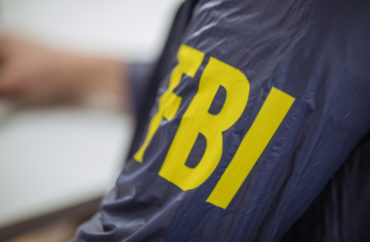
ANALYSIS: What did the FBI know, and when did it know it?
The recently announced results of the FBI’s investigation into bomb threats made in February targeting Historically Black Colleges and Universities effectively debunk the narrative that these threats were made by a malicious group of white supremacists.
On November 14 — six days after the midterm elections — USA Today reported a senior FBI official said the “bulk of the threats leveled against historically Black colleges earlier this year are believed to be linked to a single juvenile who has been prosecuted as a minor by state authorities.”
The agency’s admission raised more questions than it answered. What the feds have not said is:
The race of the suspect
The motive of the suspect
When the suspect was charged
What state was the suspect charged in
Why the agency did not charge the suspect as an adult after terrorizing HBCUs
And perhaps most importantly: Why didn’t the agency share the results of the investigation far sooner than a few days after the midterm elections — and after multiple requests from Congressional Republicans and Democrats?
“The Biden administration launched an FBI investigation into the February threats, labeling the incidents ‘hate crimes’ and ‘Racially or Ethnically Motivated Violent Extremism,’” Politico reported in mid-August. “Six months later, there have been no arrests. No suspects have been named, there have been no public statements about what triggered the threats and no clarity given as to whether the incidents were linked.”
Over the past six months, members of both parties called on the Department of Homeland Security and FBI multiple times to inform them of progress on the investigation. The most recent request was on Oct. 4 by Republican U.S. Senator Tim Scott along with Democrats in the HBCU Caucus.
One can only speculate as to why the feds slow-walked any announcements.
Worst-case scenario: the Department of Homeland Security and the FBI knew this juvenile was not a credible threat and was not part of a white supremacy group — however they continued to use this HBCU bomb threat story to promote a political narrative that “white supremacy is the greatest threat to the homeland” for eight months leading up to the November 8 election.
On April 8 — a month after the FBI admitted at least they suspected a juvenile — Department of Homeland Security Secretary Alejandro Mayorkas said in a speech that “the most prominent threat is the threat of white supremacists. And that came quite clearly to the surface when we saw over the past several months repeated and persistent bomb threats against Historically Black Colleges and Universities.”
The College Fix obtained two complete audio recordings of 9-1-1 calls from February 1. One was made to Atlanta 911 with a threat made to Spelman College and the other to Little Rock PD with threats to Arkansas State, Shorter College and Philander Smith College.
Listening to the Spelman call — even the Spelman security personally contacted by the 9-1-1 operator quickly debunked the caller’s claim that the suspect had placed bombs on campus, saying the college was essentially closed and shut down to visitors at the time the caller claimed he planted the bombs.
In both, the caller sounds childish, amateurish, and certainly not representative of the “tech-savvy juveniles” the FBI claimed in late March was keeping them guessing and investigating.
Was this juvenile really some sort of wanna-be white supremacist? If he was, it’s hard to believe the FBI would protect him and go to such great lengths to stymie Congressional inquiries and hide his identity. Their secrecy lends credence to the assumption this might have been a false-flag operation by someone seeking to create a narrative.
Earlier this week, Kentucky State University Associate Professor of Political Science Wilfred Reilly wrote an opinion piece in The Wall Street Journal headlined “Facts Ruin a Narrative About Hate Crimes at HBCUs: ‘White supremacist society’ was blamed for bomb threats. Turns out it was a single teenager.”
“What a ‘hate hoax’ is can be a complex and even academic question. The single race-unknown minor who made the great majority of the HBCU threats could be a personal bigot, or could have had another motivation for making the calls. We simply don’t know. All we can say for sure is that another racial-conflict narrative has collapsed,” Reilly wrote.
Reilly tracks hate-crime hoaxes and is author of the 2019 book “Hate Crime Hoax: How the Left is Selling a Fake Race War.”
“An official FBI report on the HBCU case provides further interesting details: During this past year, lunatics or jokers appear to have made similar threats to ‘more than 250 colleges . . . over 100 high schools, and two junior high schools’ in addition to the 50 or so HBCUs that were widely reported on,” Reilly wrote. “These threats ‘appear to have originated overseas,’ according to the FBI, rather than with white American racists.”
The College Fix asked the FBI in late March the race of the suspect or suspects at the time. The agency declined to say. What we do know is the calls started coming in at the start of Black History Month. In the wake of the threats, the Department of Education announced grants for bomb-threatened HBCUs.
Should the FBI be absolved of answering the tough questions about how it handled this case, which was treated on a public-facing level as a serious threat that rightfully frightened and concerned dozens of HBCUs throughout the spring semester?
This minor committed multiple felonies with each call and terrorized HBCU students. For many there are lingering questions.
Editor’s note: A citizen journalist assisted with collecting data for this report.
MORE: FBI has 34 field offices working 6-month-old HBCU bomb threats case — yet still no arrests
IMAGE: DZelat / Shutterstock





Please join the conversation about our stories on Facebook, Twitter, Instagram, Reddit, MeWe, Rumble, Gab, Minds and Gettr.